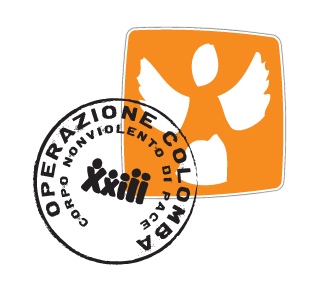Every year, hundreds of Palestinian children are victims of the same situation.
Raids at home, also in the middle of the night, arrests, intimidations. Blindfolded and handcuffed, they are transferred to the police station for the interrogation, often subjected to violence along the way. Interrogated – some of them after a long transit, others without foods or water for hours, others sleep-deprived. Alone, without an adult they trust near them, and without the possibility to consult a lawyer. Often the children give a confession after verbal abuse, threatens, physical and psychological violence.
PALESTINE
News
VISIT PALESTINE: POSTCARDS FROM OCCUPIED TERRITORIES / 10

Beit Ijza – Living in a cage
Suleiman is silent while he is drinking his coffee, sitting on the steps of his house. He is looking at the cameras that monitor every centimetre of his house. The surveillance cameras point at the small corridor connecting the house to the iron gate, on the fence, and on the 6-meter wall which delimits the few dunums left to him. He looks at the cameras, oriented at those 2 meters distance between the fence and the settlement. Just 2 meters, which Israel wanted to reduce further to 60 centimetres, and that Suleiman has conquered, day after day.
He gazes at the houses of the settlement. The structures built continue to increase, becoming every day bigger. Or maybe it’s how he sees it: overwhelming, suffocating, all around what he calls home, but that seems more like a prison. Last night again, the settlers didn’t give them a break. They have launched some buckets of water on the freshly washed clothes off the line. It happens every day, the fence which divides them has very wide mesh, while the walls are low.
VISIT PALESTINE: POSTCARDS FROM OCCUPIED TERRITORIES / 9

Ein Hajla – Stories of resistance
Mahmoud sits on the deck chair. Hafez prepares baba ganush and dinner with the few kitchenware they brought with them. As evening approaches, a little breeze rises. Mahmoud looks at the fire, deep in thought. That uninhabited place is the treasure chest of a history of resistance.
“The smoke bombs, the violence, the lined-up soldiers, the screams, the evictions. Do you remember Hafez?
But what days have been! You could feel it in the air that people were tired, ready for something big. What a crowd, and what dreams we had. Entire families had settled here, from all over the West Bank. All here. To claim the end of the occupation.
Do you remember how we took the soldiers by surprise? We set up tents not far from a military base. And we lived there for almost a week, hundreds of people. They succeeded to chase us, but we resisted with all our strength.
What does remain of those days? Where is the spirit that led us to fight here, united? "
VISIT PALESTINE: POSTCARDS FROM OCCUPIED TERRITORIES / 8

Burin – Settlers’ violence
We are outside the area just declared closed military zone, looking at the soldiers on the other side of the road, to control that Abu Salem can continue to pick olives from his olive grove.
Suddenly a loud noise comes from behind us. I turn around. I don’t have time to realize that the sound I’ve just heard is a shot, that I start to run following the others. We rush inside the car which starts to speed in the streets of the village of Burin. When it starts to slow down, we jump outside the car which is still with the engine turn on.
VISIT PALESTINE: POSTCARDS FROM OCCUPIED TERRITORIES / 7

Bruqin - Coordination and settlers' violence
It’s the first day of the olive harvest. Farah has waited for this day all year. Throughout the year she tried to remember her olive trees, the smell of the land, the sun that filters through the branches of its ancient and powerful trees at dawn. For a whole year, she hoped that her field would not be vandalized by the settlers of Bruchin, the settlement just outside her land.
They are all at work: her brother, her four children, and her husband. Sometimes Farah looks at the soldiers not so far from them. They are four, with their khaki uniforms and their M-16 held tightly. They are near the jeep, showing no interest in anything that surrounds them. Farah is not quiet. The soldiers are there to protect them from the settlers, in case of need. She knows it. But she is still not quiet. The soldiers are not on their side, they’ve never been.
While she is loading a sack on the truck, she hears voices coming from the settlement, right behind her. Shortly after, four settlers appear. They are young. They get close to the jeep, where the soldiers greet them with big smiles, shaking hands, and hugs. They start to talk altogether and then a soldier nods at Farah and her family, who in the meantime are still working, pretending nothing is happening.

 OPERAZIONE COLOMBA
OPERAZIONE COLOMBA
